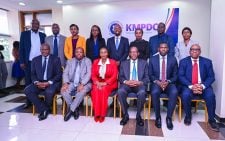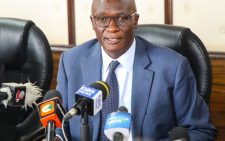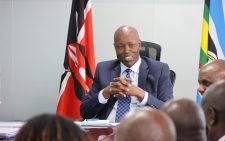Worldcoin: Standing up for data protection in Kenya

In May 2025, a Nairobi courtroom became ground zero in a global battle over digital power. Kenya’s High Court declared Worldcoin’s biometric operations illegal—a landmark ruling that may redefine how tech companies engage with the Global South.
Worldcoin, co-founded by OpenAI’s Sam Altman, launched in Kenya in 2023 with a seductive offer: Scan your irises, receive $56 worth of cryptocurrency, and join a decentralised global identity network.
For over 300,000 Kenyans, the pitch was irresistible. But beneath the sheen of inclusion lay a model built on asymmetry and ambiguity. There was no Data Protection Impact Assessment (DPIA). No clear consent protocols.
No transparency about where or how biometric data would be stored, processed, or monetised. The “orb”—Worldcoin’s signature scanner—became a chilling symbol of data extraction cloaked in tech evangelism.
By August 2023, the Kenyan government suspended Worldcoin’s operations, citing serious privacy and national security concerns.
Investigations by the Office of the Data Protection Commissioner (ODPC), the Directorate of Criminal Investigations, and a parliamentary committee uncovered disturbing practices: Minors were enrolled without oversight, misleading messaging was deployed, and sensitive data was exported across borders without safeguards.
“The data was collected without a lawful basis, without a valid impact assessment, and without demonstrable informed consent,” the ODPC later stated.
“This constitutes a breach of Sections 25, 31, and 38 of the Data Protection Act.” Justice Roselyne Aburili, presiding over the case, ruled that Worldcoin had violated Articles 28 and 31 of the Kenyan Constitution—protecting dignity and privacy—as well as multiple provisions of the 2019 Data Protection Act.
The court ordered the deletion of all biometric data, banned further processing, and nullified any previous authorisations. Enforcement was placed under the ODPC’s supervision.
This wasn’t just legal housekeeping—it was a geopolitical message. Kenya, often treated as a testing ground for emerging technologies, had drawn a firm line.
The country rejected extractive data models, predatory incentives masquerading as empowerment, and the commodification of human identity under the guise of innovation.
What distinguishes Kenya’s response isn’t just its legal framework—it’s the institutional resolve. The ODPC stepped up. Civil society groups like the Katiba Institute and Haki na Sheria filed pivotal legal challenges.
The judiciary delivered a clear, rights-centred ruling. Together, they have demonstrated that digital rights can be defended—even against billion-dollar ventures.
Worldcoin’s collapse in Kenya also forces a deeper reckoning: What does “informed consent” mean in a world of algorithmic desperation?
When a struggling citizen trades their iris for $56, is that a decision, or a survival response? Surveillance capitalism, as Wangechi Mwangi, Market Manager for TFH, warns, thrives where power imbalances make true consent impossible.
While countries like Germany and Spain issued regulatory warnings or suspended Worldcoin’s activities, none moved with the legal finality and constitutional conviction that Kenya just did.
This ruling signals that Africa is no longer a passive frontier for global tech experimentation—it is becoming a force in shaping the ethics of innovation.
Other African nations should take note. Nigeria, Ghana, and Rwanda are rolling out large-scale biometric ID programmes, often backed by foreign vendors. Without robust enforcement, those efforts risk replicating Worldcoin’s model—innovation without safeguards, efficiency without dignity.
Sovereignty in the digital age is no longer about land. It is about who governs data, who benefits from it, and who gets to say no. Kenya has now shown that the future can be protected by acting decisively in the present.
The next time a shiny orb lands in a crowded market promising inclusion through surveillance, it may encounter not just legal resistance, but a continent no longer willing to trade its dignity for data.
The Writer is a Global AI and Climate Policy Strategist and Researcher .















